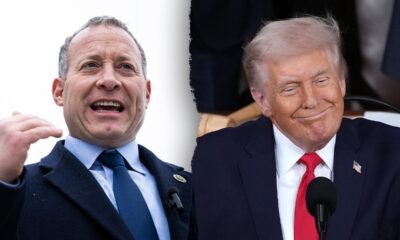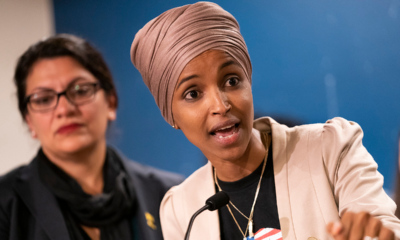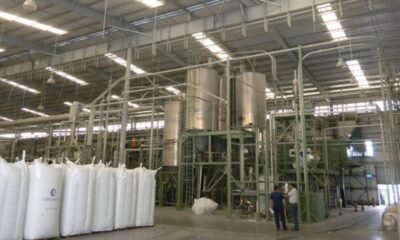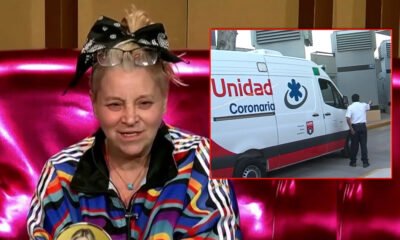INTERNACIONAL
Manchin recalls close ties with ‘outsider’ Trump, cold shoulder from Obama in new book

NEWYou can now listen to Fox News articles!
Former Sen. Joe Manchin, I-W.Va., said he spoke more with President Donald Trump in the first two years of Trump’s term than with former President Barack Obama during Obama’s eight years in office.
In his new book, «Dead Center: In Defense of Common Sense,» released this week, Manchin outlined a cordial working relationship with Trump and a far chillier, less active back and forth with Obama.
Manchin, who switched from the Democratic Party to become an Independent before retiring from the Senate last year, wrote that he considered Trump a fellow «outsider» when he arrived in Washington, D.C., for his first term and lauded him as the «most engaged president I ever worked with» since former President Bill Clinton.
MANCHIN SAYS HE WANTED GOP TO WIN SENATE TO STOP DEMOCRATS’ QUEST FOR ‘RAW POLITICAL POWER’
Former Sen. Joe Manchin, I-W.Va., detailed a cordial relationship with President Donald Trump in his new book. (Alex Wong/Getty Images)
«From the start, President Trump had an open line of communication with me,» he wrote. «I spoke to him more in the first two years of his presidency than I did to President Obama during all eight years of his time in office.»
He noted, «If you want to have influence with Donald Trump, you have to be the last person he talks to about a topic,» and said he would jokingly ask that the president ensure he was the last person he called.
«He’d laugh, and we’d talk it out,» he said.
He recalled his 2018 election campaign in the wake of Trump’s dominant, 40-point win in the state. Trump told Manchin that he was being pressured to campaign against him and promised he wouldn’t. Ultimately, Trump visited the state five times, but Manchin still came out on top.
JOE MANCHIN TELLS ‘THE VIEW’ WHY HE COULDN’T ENDORSE KAMALA HARRIS
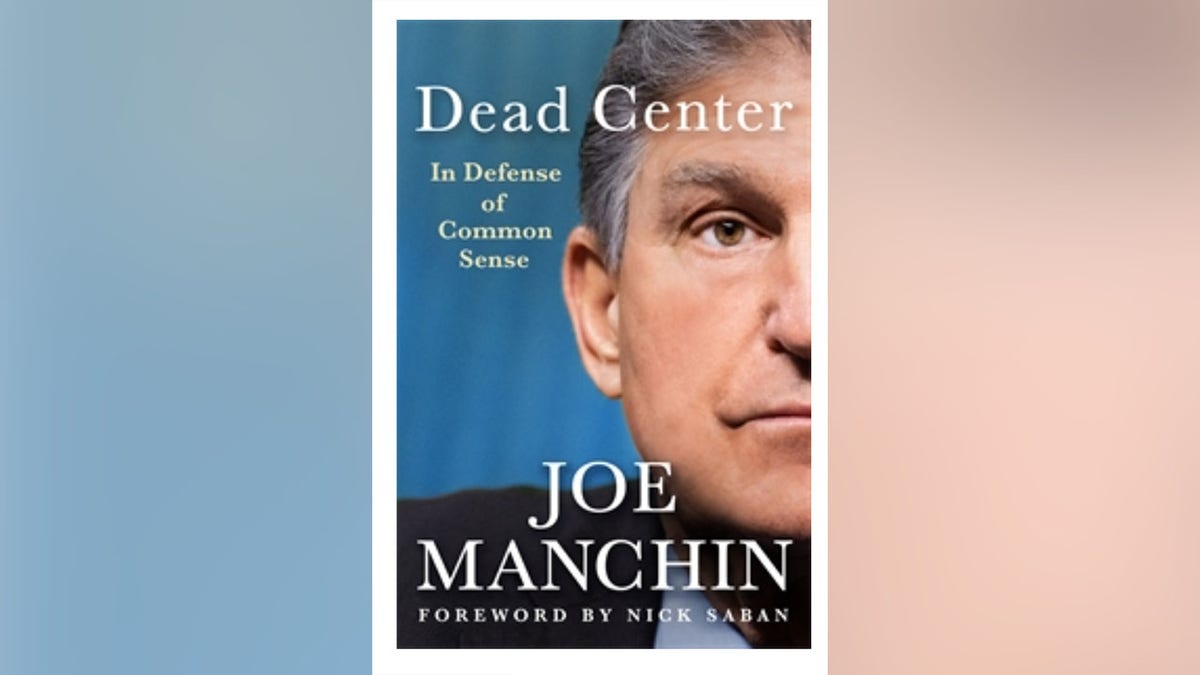
Former Sen. Joe Manchin, I-W.Va., detailed a more cordial relationship with President Donald Trump than his distant relationship with former President Barack Obama. (St. Martin’s Press)
He was later invited to the Oval Office to meet with Trump, where, in front of then-Vice President Mike Pence and Ivanka Trump, the president «blurted to his other guests, ‘I told you we couldn’t beat him,’» Manchin wrote.
Manchin’s relationship with the former president goes back to his time as governor of West Virginia, when Obama was still a senator. The two worked together on a coal deal in Illinois that had previously excluded West Virginia.
During the 2008 election cycle, he said he invited both then-Sen. Hillary Clinton, D-N.Y., and Obama to come to West Virginia to campaign, but said Obama shook off the invitation and told him, «Let’s be honest with each other — my demographics don’t work well in your state.»
NEW BOOK REVEALS WHAT OBAMA AND ‘CONQUEROR’ TRUMP CHATTED ABOUT IN VIRAL MOMENT DURING CARTER’S FUNERAL
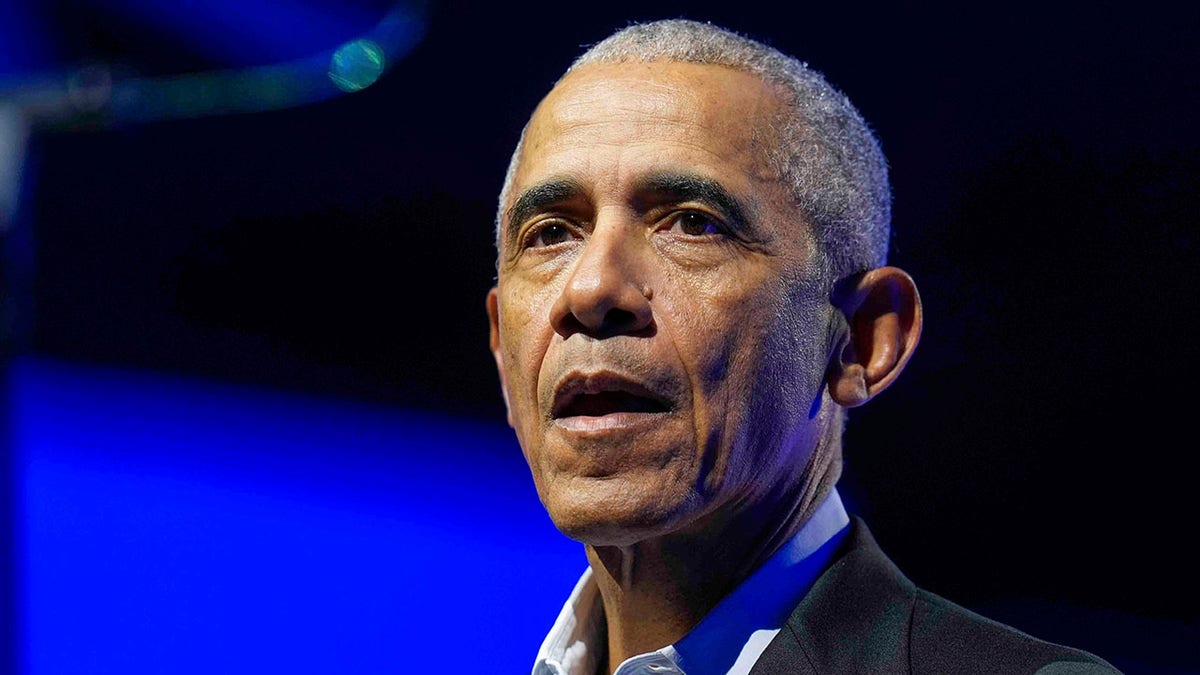
Former President Barack Obama speaks at the Obama Foundation Democracy Forum on Dec. 5, 2024, in Chicago. (Erin Hooley/AP Photo)
«But he didn’t come, and that night belonged to Hillary,» he wrote. «She made the most of her visit and won the primary by 41 points.»
He said their relationship became even chillier when Obama launched his «war on coal» with a push for green initiatives that targeted fossil fuels and states like West Virginia.
CLICK HERE TO GET THE FOX NEWS APP
Manchin argued that the Democratic Party had grown dismissive and lost touch with the working class as a means to reshape their agenda through a progressive lens. That led to a seismic shift in West Virginia’s political alignment, from Democratic to now largely Republican, he said.
And in the process that began when Obama won in 2008, he said that rural states like his felt «overlooked and undervalued.»
«But that’s exactly how Democrats handled West Virginia, and no one embodied that disconnect more than President Obama,» he wrote.
Fox News Digital reached out to Obama’s office and the White House for comment but did not immediately hear back.
senate,donald trump,barack obama,politics
INTERNACIONAL
Objetivo: Acabar con el régimen

Ese es el titular y ese es el sentido de los ataques coordinados de Israel y Estados Unidos que este 28 de febrero se han producido contra Irán: no buscan objetivos concretos, como la finalización de la carrera nuclear, o la destrucción de los centros de ensamblaje de los misíles balísticos, sino la caída completa del régimen.
La operación ‘Furia épica’, y su homólogo israelí ‘Rugido del León’ no son una reedición de las operaciones bélicas de junio pasado: el ‘León Creciente’ y su par americano, el ‘Martillo de medianoche”. En aquella ocasión se buscaba amedentrar al régimen, herir sus estructuras bélicas y, sobretodo, atacar las instalaciones nucleares de Natanz, Isafhan y la impenetrable Fordow, después de la constatación del nivel de enriquecimiento crítico del uranio que había conseguido Irán. Fue una operación quirúrgica y, por ende, limitada. Pero esta vez, en palabras del propio Trump, la intención es integral: destruir la industria de mísiles iraní, aniquilar su potencial armado, aniquilar toda opción nuclear, destruir la capacidad de desestabilización de sus aliados terroristas y, en definitiva, eliminar completamente la amenaza que supone el régimen de los ayatolas. Es por ello que Trump ha acabado su vídeo de ocho minutos en Truth Social asegurando al pueblo iraní que “la hora de su libertad está a su alcance” y animándolo a tomar las riendas de su destino. Por si hubiera alguna duda, el primer objetivo del ataque ha sido matar al líder supremo Alí Khamenei, cuya situación al momento de escribir el articulo, aún es confusa.
Si esa es la premisa, la caída del régimen de los ayatolás que aterroriza a su población y desestabiliza a toda la región desde 1978, cabe preguntarse si realmente es un objetivo viable y a qué plazo. Sobretodo porque Irán no es Venezuela: tiene capacidad militar poderosa; su guardia revolucionaria y el resto de cuerpos militares y policiales son compactos y están muy bien entrenados; está situado en un zona de enorme valor geoestratégico, capaz de crear grandes sacudidas económicas; tiene objetivos americanos y al propio Israel al alcance de sus misiles, y sus proxies, pueden atacar a sus enemigos desde muchas posiciones. Con todo ello, no parece que pueda tratarse de una guerra corta (de momento, fuentes de seguridad israelí hablan de más de una semana de ataques), aunque la voluntad americana sea acortarla al máximo y centrarla en los ataques aéreos. Pero si el objetivo es la caída del régimen, ¿será suficiente la batalla aérea? Sin duda a nadie le interesa una guerra con infantería, y menos a Trump, que podría encharcar a Estados Unidos en un nuevo Afganistán. No hay que olvidar que Irán tiene 650.000 efectivos activos, una de las infanterías más grandes del mundo. Pero, si imaginar una guerra con infantería es un pésimo propósito, descartarla es imprudente.
Con todo, la superioridad militar de americanos e israelíes en mar y aire está fuera de toda duda y por tanto es imaginable que consigan colapsar el régimen destruyendo todos sus centros estratégicos, tanto militares, como políticos. Lo cual no significa que Irán no pueda ser letal en las próximas horas y días. El éxito militar de USA e Israel se da por seguro. El cuándo se produce y qué consecuencias políticas tiene, es más difuso.
En este sentido, ¿es el momento de atacar Irán? Sin ninguna duda. Primero, porque es el punto final de la guerra que empezó el 7 de octubre de 2023, con la masacre de Hamás en Israel, auspiciada por los ayatollahas. A partir de aquel punto de inflexión, Irán pasó, de ser el enemigo a vigilar, a ser el enemigo a abatir, no solo para Israel, sinó para otros países preocupados por la carrera nuclear y por el potencial que Irán había aconseguido a través de sus proxies: chiitas iraquíes, la Siria de los Asad, el Hezbollah en el Líbano, los huties del Yemen, y los grupos terroristas que actuaban en Gaza. Y ello sin contar con la penetración iraní en América Latina. No había opción para la negociación. Pero la guerra con Irán solo podía producirse si se ocurrían tres grandes sacudidas: si Israel ganaba su propia guerra en el Líbano contra Hezbollah y en Gaza contra Hamás; si caía el régimen sirio; y si llegaba Trump a la Casa Blanca. Todo pasó, y ahora està ocurriendo lo que entonces ya estaba predestinado.
Pero hay más motivos que han desencadenado la decisión final. Por un lado, la constatación de que China y Rusia no tienen ninguna intención de intervenir. Al contrario, necesitan una situación de estabilidad en la región. Por otro lado, la mayoría de países de la región quieren pasar del momento Irán al momento Acuerdos de Abraham, y al consecuente potencial económico que puede generar. Finalmente, la grave crisis económica del país sumada a la extraordinaria y heroica revuelta de los iraníes, cuya valentía han pagado con miles de muertos, han mostrado la extrema debilidad de un régimen enloquecido y delirante que se aguanta por el terror, con la mayoría de la población en su contra. Con un añadido final: la aparición de Reza Pahlavi, cuya popularidad lo convierte en posible referente para el proceso democrático. Estados Unidos no tiene una Delcy en Irán, pero con Pahlavi tiene un puente de transición.
Conclusiones finales, aunque precarias, dada la volatilidad de la situación: la guerra es total y tiene como objetivo el final del regiment de lo ayatollas; Estados Unidos e Israel han desencadenado una fuerza militar colosal, que Irán no puede vencer; la guerra puede durar más de lo que quisiera Trump, porque el régimen la vivirá como una “guerra existencial” e intentará morir matando; es el gran momento de la oposición al régimen, que siempre consideró necesaria la intervención para poder derrocarlo. Finalmente, lo más importante: si cae el régimen, además de liberar al pueblo persa, habrá ganado la causa de la mujer, la causa de los derechos humanos y la siempre eterna y frágil causa de la libertad.
X: @RaholaOficial
Web:
Instagram: pilar_rahola/
Business,Civil Conflict,Demonstrations,Riots,Corporate Events,Europe,Civil Unrest
INTERNACIONAL
Democrats buck party leaders to defend Trump’s ‘decisive action’ on Iran
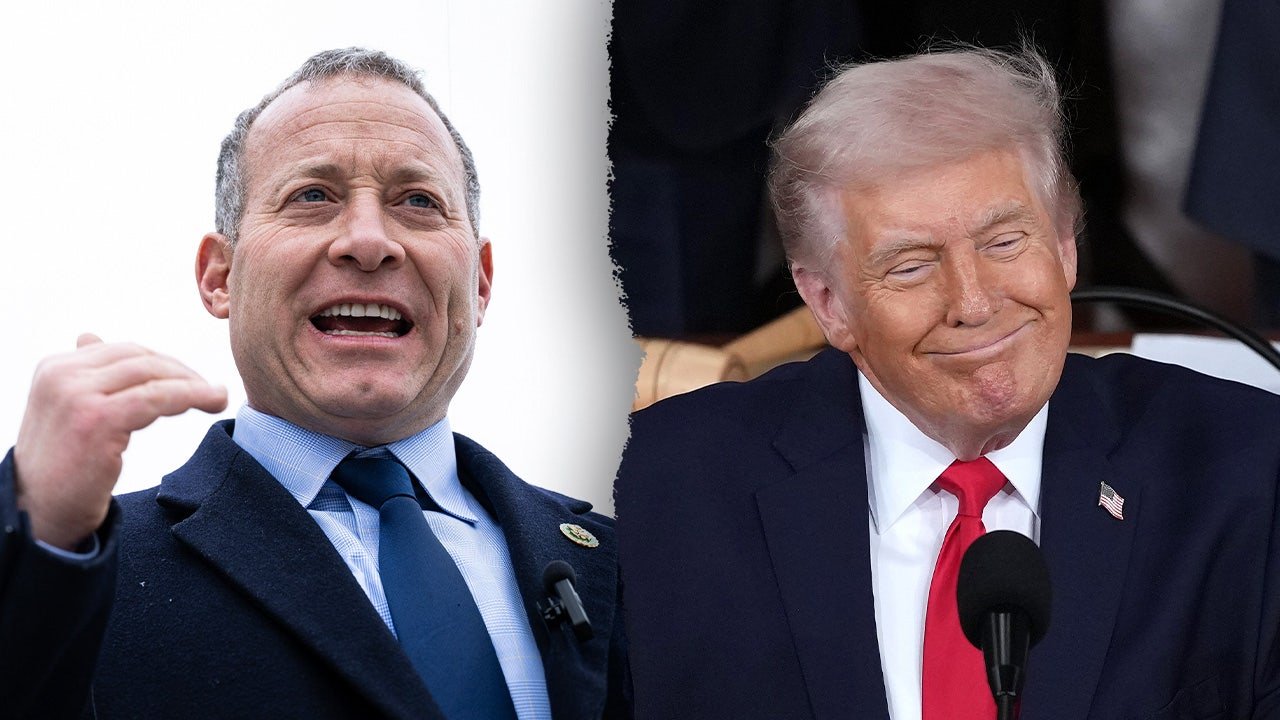
NEWYou can now listen to Fox News articles!
President Donald Trump’s joint strikes on Iran are exposing a divide in both parties, as several Democrats come to the president’s defense while a handful of Republicans question his constitutional authority.
Trump announced U.S. and Israeli forces targeted Iranian leadership and military sites in the early hours of Saturday morning, catching millions of Americans — and the majority of lawmakers in Congress — by surprise.
A handful of House Democrats are justifying the operation, bucking most of their party, who are calling the operation a reckless and illegal action. On the other hand, at least three Republican lawmakers are signaling that the news gave them some pause as of Saturday morning.
Rep. Greg Landsman, D-Ohio, said that the strikes «are targeting military infrastructure —- with warnings to Iranian civilians to take shelter away from these military targets.»
Democrats like Rep. Josh Gottheimer are breaking from their party to justify President Donald Trump’s joint operation with Israel. (Graeme Sloan/Bloomberg via Getty Images; Andrew Harnik/Getty Images)
«I want a lasting peace for everyone in the region — from the Iranian people to the Lebanese, Palestinians, Syrians, Iraqis, Jordanians, and Israelis. I hope these targeted strikes on the Iranian regime’s military assets ends the regime’s mayhem and bloodshed and makes way for this lasting peace in the region,» Landsman said.
«Thank you to our brave service members who are leading this effort, and I pray their work will finally free the people of Iran and those in the region from more violence or war.»
Reps. Tom Suozzi, D-N.Y., and Josh Gottheimer, D-N.J., similarly put the onus on Iran, as did Sens. Jacky Rosen, D-Nev., and John Fetterman, D-Pa.
ISRAEL LAUNCHES PREEMPTIVE STRIKE AGAINST IRAN, DEFENSE MINISTER SAYS
On the Republican side, Reps. Warren Davidson, R-Ohio, Thomas Massie, R-Ky., and Sen. Rand Paul, R-Ky., are concerned about how actions against Iran could run afoul of Congress’ own constitutional authority.
«We need a government small enough to fit within the Constitution. We need a government effective enough to solve problems and serve its own people. Or, we need a new Constitution,» Davidson posted on X.
When another user asked if he supported Trump’s actions against Iran, Davidson replied, «No. War requires congressional authorization.»

Rep. Thomas Massie, R-Ky., questions Attorney General Pam Bondi before a House Judiciary Committee hearing on Capitol Hill in Washington, Feb. 11, 2026. (Robert Schmidt/AFP via Getty)
ISRAEL TARGETS IRAN’S SUPREME LEADER IN SWEEPING STRIKES AS US JOINS ‘OPERATION EPIC FURY’
Massie, a longtime critic of foreign intervention, went so far as to introduce a resolution alongside Rep. Ro Khanna, D-Calif., to rein in Trump’s war powers. House Democrats are demanding a vote on that resolution as soon as next week.
Landsman told NOTUS that he would vote against such a measure if it came to the House floor.
Rep. Josh Gottheimer, D-N.J., while similarly praising the military’s moves, refused to tell Fox News Digital if he would support the resolution via a spokesperson.
«Today, the United States, with our key democratic ally Israel, took decisive action to defend our national security, fight terror, protect our allies, and stand with the Iranian people who have been massacred in the streets for demanding freedom from the murderous Iranian regime,» Gottheimer said in a statement.
«I applaud the extraordinary bravery and professionalism of our servicemembers and pray for their safety as Iran and its terrorist proxies retaliate against American bases and our partners in the region.»
He, like Suozzi and Rosen, called for a classified briefing on the operation’s details.
GULF STATES CONDEMN IRANIAN RETALIATORY STRIKES ON THEIR TERRITORIES FOLLOWING US-ISRAELI OPERATION
«I agree with the President’s objectives that Iran can never be allowed to obtain nuclear capabilities. The President must now clearly define the national security objective and articulate his plan to avoid another costly, prolonged war in the Middle East,» Suozzi said in his own statement.
Fetterman, meanwhile, has been among the Democrats most full-throated in his support.
«President Trump has been willing to do what’s right and necessary to produce real peace in the region. God bless the United States, our great military, and Israel,» he posted on X early Saturday morning, among the first lawmakers to sound off.

A person holds an image of Iran’s Supreme Leader Ayatollah Ali Khamenei as Iranian demonstrators protest against the U.S.-Israeli strikes, in Tehran, Iran, Feb. 28, 2026. (Majid Asgaripour/WANA (West Asia News Agency) via Reuters)
He said of the war powers vote, «I’m a hard no. My vote is Operation Epic Fury.»
It’s a stark contrast to the majority of Democratic lawmakers who have lambasted Trump for not getting authorization from Congress before the strikes.
CLICK HERE TO DOWNLOAD THE FOX NEWS APP
House Minority Leader Hakeem Jeffries, D-N.Y., accused Trump of moving to «abandon diplomacy and launch a massive military attack has left American troops vulnerable to Iran’s retaliatory actions.»
In the Senate, Minority Leader Chuck Schumer, D-N.Y., said, «Confronting Iran’s malign regional activities, nuclear ambitions, and harsh oppression of the Iranian people demands American strength, resolve, regional coordination, and strategic clarity. Unfortunately, President Trump’s fitful cycles of lashing out and risking wider conflict are not a viable strategy.»
congress,war with iran,house of representatives politics,foreign policy senate,donald trump,politics
INTERNACIONAL
Did they get him? Khamenei’s fate remains unknown after Israel strike levels his compound
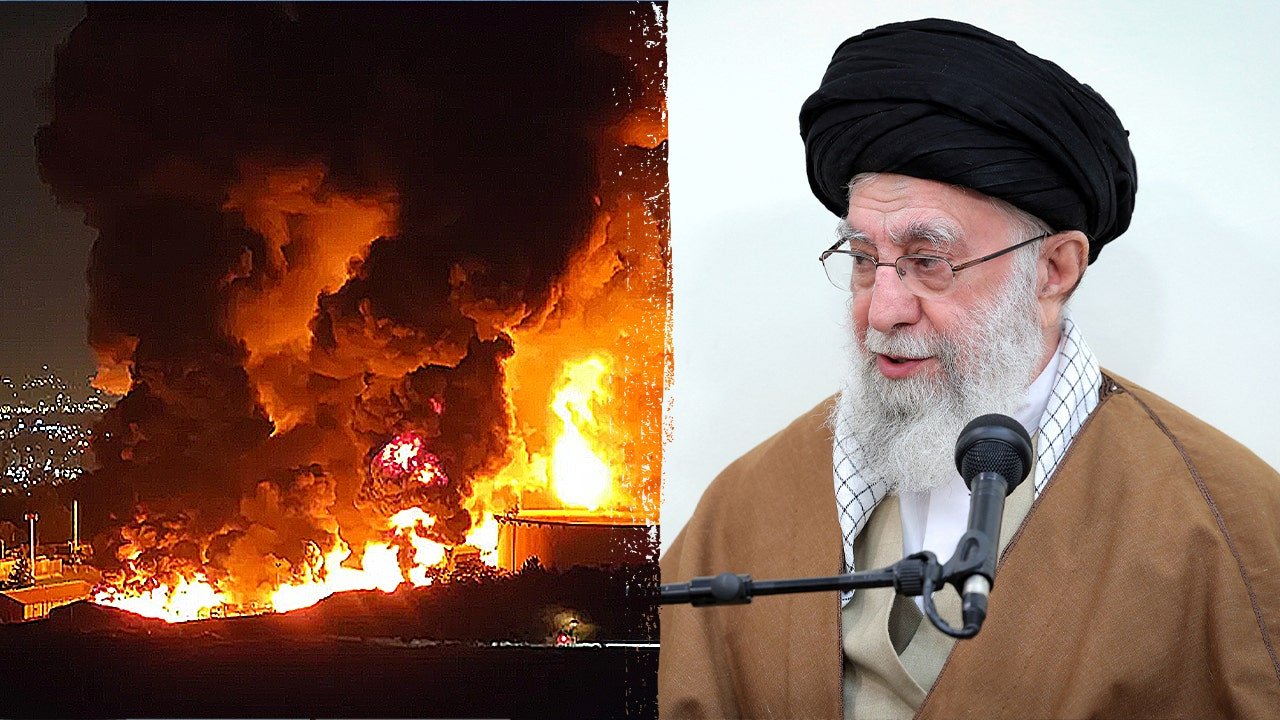
NEWYou can now listen to Fox News articles!
As the smoke was still clearing over Tehran, one question dominated the region and Washington alike: Did they get him?
In the immediate aftermath of the Israel-U.S. strikes, with the Israeli Air Force targeting senior Iranian leadership infrastructure, rumors swirled that Ayatollah Ali Khamenei, Iran’s 86-year-old supreme leader, had been killed.
Satellite images showed heavy damage to Ayatollah Ali Khamenei’s fortified compound, including buildings believed to house his residence and the so-called House of Leadership. Parts of the complex appeared reduced to rubble.
Regional reports indicated a high-level meeting of Khamenei’s top lieutenants may have been underway when the strike hit. Iranian semi-official media also reported missiles struck near the presidential palace and other leadership sites north of the capital.
Iran’s Supreme Leader Khamenei makes first public appearance in weeks with fresh U.S. threats. (Office of the Iranian Supreme Leader Credit/ASSOCIATED PRESS)
Addressing the nation on Saturday, Prime Minister Benjamin Netanyahu said in Hebrew, «There are more and more signs indicating Khamenei is gone.»
Israeli officials told Fox News Digital they were still assessing the results and said it was too early to confirm the fate of the 86-year-old supreme leader. They did not rule out the possibility that he was killed.
Iranian officials, however, insisted the country’s leadership — including Khamenei and President Masoud Pezeshkian — remained safe, according to The Guardian, despite what they described as an assassination attempt. Meanwhile, a spokesperson for Iran’s Ministry of Foreign Affairs told the BBC that he was not in a position to confirm whether Ayatollah Ali Khamenei had been eliminated.
IRAN FIRES MISSILES AT US BASES ACROSS MIDDLE EAST AFTER AMERICAN STRIKES ON NUCLEAR, IRGC SITES

In this picture released by an official website of the office of the Iranian supreme leader, Supreme Leader Ayatollah Ali Khamenei stands as army air force staff salute at the start of their meeting in Tehran, Iran, Friday, Feb. 8, 2019. Khamenei is defending «Death to America» chants that are standard fare at anti-U.S. rallies across Iran but says the chanting is aimed at America’s leaders and not its people. (Office of the Iranian Supreme Leader via AP)
The long-serving cleric has survived decades of internal unrest, assassination plots and foreign pressure. He rarely appears in public without layers of security and is believed to operate through a tightly controlled network of loyalists embedded across Iran’s military, intelligence and political institutions.
In an exclusive Fox News Digital report earlier this week, researchers described how Khamenei runs what amounts to a parallel state within Iran’s formal government structure.
«The Bayt is the hidden nerve center of the regime in Iran… it operates as a state within a state,» Kasra Aarabi, director of Islamic Revolutionary Guard Corps (IRGC) research at United Against Nuclear Iran (UANI), told Fox News Digital.
IRAN COULD ‘ACTIVATE’ HEZBOLLAH IF US TARGETS REGIME, TRUMP’S INNER CIRCLE TO DECIDE: EXPERT

Smoke rises on the skyline after an explosion in Tehran, Iran, Saturday, Feb. 28, 2026. (AP Photo/Vahid Salemi)
Even if Khamenei himself were removed, Aarabi warned, the institutional machinery he built — involving roughly 4,000 core staff and a broader network of tens of thousands — could continue functioning.
«Even if he is eliminated, the Bayt as an institution enables the Supreme Leader to function,» Aarabi said. «Think of the Supreme Leader as an institution rather than just a single individual.»
That reality complicates the picture.
For decades, Khamenei has positioned himself not merely as a political leader but as the apex of a system designed to survive shocks — whether from protests at home or military pressure abroad.
The 86-year-old cleric has faced repeated waves of unrest, including mass protests in 2009, 2022 and again in early 2026. Each time, his regime cracked down forcefully, consolidating control rather than fracturing.
He has also weathered years of covert operations, cyber campaigns and targeted strikes against key Iranian figures across the region.
Still, the scale of the latest strike appears unprecedented.
If confirmed dead, Khamenei’s killing would mark the most significant decapitation of Iranian leadership since the 1979 revolution. It would also raise immediate questions about succession inside a system he carefully engineered to avoid sudden collapse.
CLICK HERE TO DOWNLOAD THE FOX NEWS APP

A person holds an image of Iran’s Supreme Leader Ayatollah Ali Khamenei as Iranian demonstrators protest against the U.S.-Israeli strikes, in Tehran, Iran, Feb. 28, 2026. (Majid Asgaripour/WANA (West Asia News Agency) via Reuters)
If he survived, it would reinforce his reputation for resilience — and underscore how difficult it is to eliminate the core of Iran’s power structure.
For now, officials say assessments are ongoing, and the question may be answered in the very near future.
ali khamenei,war with iran,iran,israel,bombings

 ECONOMIA3 días ago
ECONOMIA3 días agoCrisis en la industria: otra multinacional se achica y cierra una planta en la Argentina

 CHIMENTOS3 días ago
CHIMENTOS3 días agoCatherine Fulop contó el difícil momento que atraviesa su madre en Venezuela: “Está postrada”

 CHIMENTOS2 días ago
CHIMENTOS2 días agoAlarma por la salud de Divina Gloria tras salir de Gran Hermano: “La internaron directamente en terapia intensiva”



